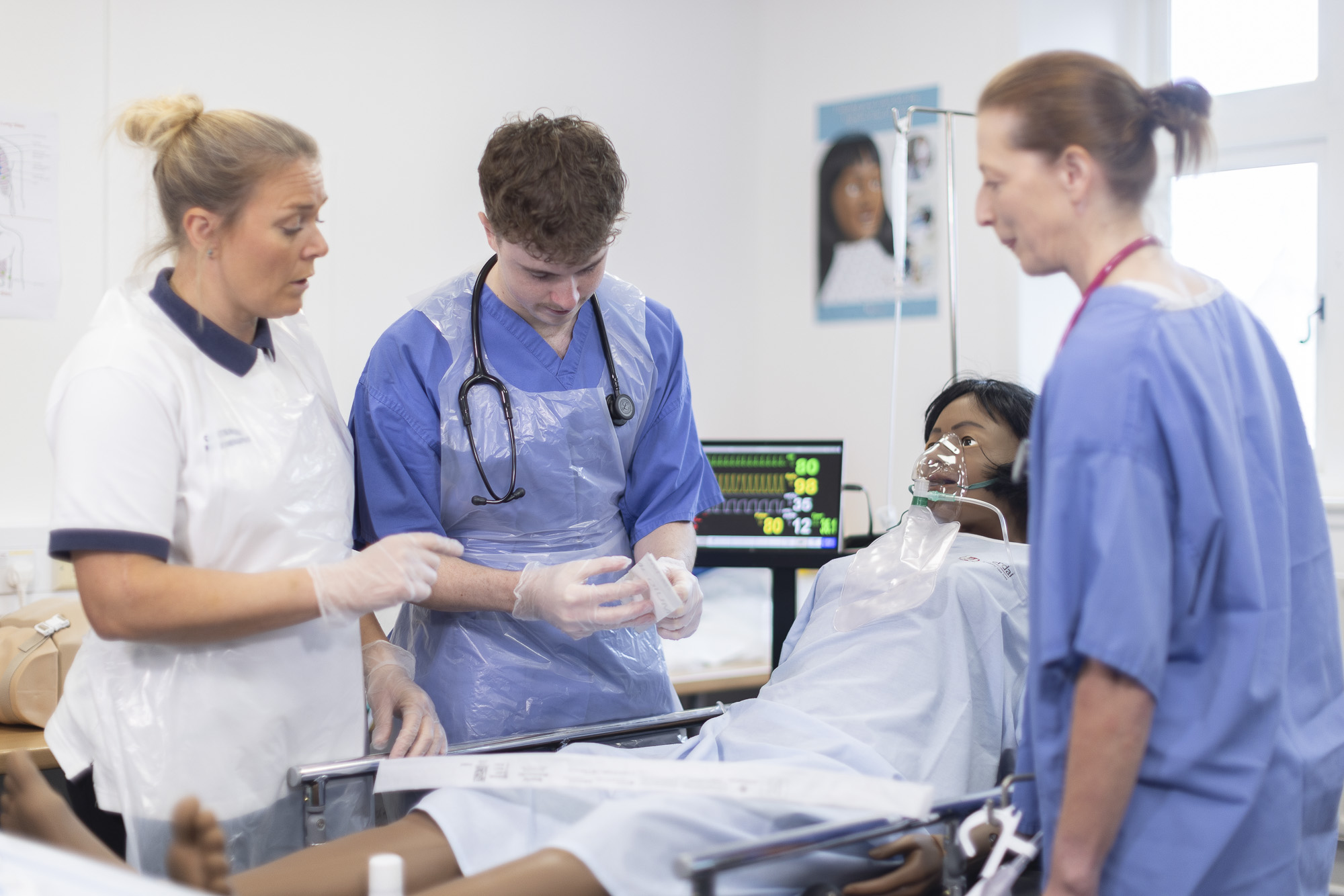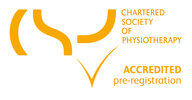Please Note: This course is currently under periodic review
Overview
Physiotherapy is an evolving profession and highly skilled, evidence-based physiotherapists are in great demand across the UK.
Join us to develop the knowledge, skills and expertise you’ll need to become a qualified physiotherapist, eligible for HCPC registration and ready to provide high quality treatment and rehabilitation to your patients.
On the course you’ll work under the guidance of experienced clinicians and will treat patients, observe other practitioners and participate in all aspects of physiotherapy-focused care, including participating in case conferences, ward rounds and a range of visits.
When you choose to study at our small, specialist university, you’ll be surrounded by like-minded people all either working or studying in health sciences. Units dedicated to mental health and person-centred care, delivered in cooperation with experts from our psychology department, will form an integral part of your learning.
You’ll be among the first students to access our newly developed Integrated Rehabilitation Centre, and our fantastic placement opportunities, including within our own on-site clinics, will give you the experience to enter the world of physiotherapy work-ready.
To register your interest for the course or ask any questions about the course, please complete the form at the bottom of the page.
We are committed to providing high-quality education and ensuring our courses remain up-to-date and relevant. This means reviewing our courses to update the curriculum, teaching methods, and assessments to ensure high academic standards and learning experiences for you. This course is currently being reviewed, so there might be some changes before it starts in January 2026. Feel free to ask questions or apply for the course; we’ll inform you of any changes made to the course once the review has been completed to give you an opportunity to confirm that you are happy to continue with your application.
Course Details
How the course is taught
- This course utilises a blended learning approach, with a mix of learning environments including large and small lectures, problem-based learning, common and complex case studies. Students will be empowered to provide high-quality treatment/rehabilitation for a variety of conditions across diverse specialities.
- This two-year qualifying course provides a link between theory and practise, so that everything you learn can be applied into your placements and real-world scenarios.
- Your first year begins with theory-based learning followed by x2 seven-week placements where you will take your theory into practise. You will then return to campus to study problem-based learning scenarios within a person-centred practise framework.
- In year two, your theory will involve building upon evidence-based physiotherapy practise through research, before completing another x2 seven-week placements and returning to campus for your final dissertation.
- The course is full-time and therefore students are expected to study throughout the week, which involves independent learning, guided learning, peer-assisted learning, as well as taught sessions through face to face seminars and/or practical sessions. Contact hours will vary dependent upon unit credits, however on average, students will have a maximum of three full days on campus.
Learning through practise educators
- This course incorporates the use of practise educators who visit to deliver key skills, provide insight from their practises, and also to freshen their own skills on any new evidence-based research.
- Studying under the tutorship of practise educators is invaluable to our aspiring physiotherapists as it further strengthens the link from theory to practise. Students can learn first hand from qualified physiotherapists who were in similar positions to them not long before. There is even the chance that students will know these practise educators when they go into placements, so it provides a good opportunity for networking and getting to know the industry.
For more information see our Course Specifications.
Career prospects
Where do physiotherapists work?
- The broad nature of physiotherapy means there really is no limit to where you can take the skills you will acquire. Take your degree far and wide, from working in the NHS, to private practise, in voluntary, higher education, and research. Physiotherapists are needed in many different areas such as, paediatrics, orthopaedics, care of the elderly, neurological, respiratory, intensive care, chronic and acute respiratory to name a few.
- Learning the diverse nature of physiotherapy can lead you into all sorts of roles. Our evidence-based practise means we are always developing research, so that we can give the highest quality to our patients to improve their quality of life.
Placements in the post-covid World
- In this highly evolving profession, we are constantly adapting to changes in the industry. With recent years’ providing entirely new challenges, we have had to come up with creative solutions to get our students working in the industry.
- In 2021, out of the universities delivering physiotherapy courses in the UK, we were one of three to be offered a 6-week student placement with the CSP (Chartered Society of Physiotherapy). The placement provided our student with an exciting and unique opportunity to understand the CSP’s work and provide a student perspective to shape CSP work across the CSP directorates.
Why you should study Physiotherapy at Health Sciences University
- Study at our small and specialist university and be surrounded by like-minded people all either working, or studying in the health sciences.
- Fantastic placement opportunities that give you the experience to enter the world work-ready
- Popular units dedicated to Mental Health and Person-Centred Care delivered in cooperation with experts from our psychology department. We make sure that this important aspect of physiotherapy is integral to your learning.
- Be among the first students with access to our newly developed Integrated Rehabilitation Centre on Garnet Campus.
Highly skilled physiotherapists are in great demand in the UK. Our MSc Physiotherapy (Pre-registration) is designed to give you the training and experience required to qualify as a Health and Care Professions Council (HCPC) registered physiotherapist.
This two-year course is aimed at those with a degree in a related science field, who want to gain the necessary skills to qualify and work as a physiotherapist at Masters, pre-registration level.
As part of the course, you will experience a wide range of placements including, NHS, voluntary, private, as well as our own on-site clinics where you’ll gain a variety of experiences with a wide range of service users.
You’ll be working under the guidance of highly skilled clinicians and will treat patients, observe other practitioners and participate in all aspects of physiotherapy-focused care. You will also have the opportunity to participate in case conferences, ward rounds and a range of visits.
For more information, please read the course specification below:
MSc Physiotherapy (Pre-Registration) – Course Specification
Unit Breakdown
Clinical Assessment in Sport and Exercise 
Units
Core units
- Concepts of Practice
- Human Science in Practice
- Professional Practice
- Developing Physiotherapy Practice Skills 1
- Physiotherapy Practice 1
- Person-centred Practice
- Mental Health
- Developing Physiotherapy Skills 2
- Research Methods in Health Sciences
- Advanced Practice Skills
- Physiotherapy Practice 2
- Physiotherapy Dissertation
Staff
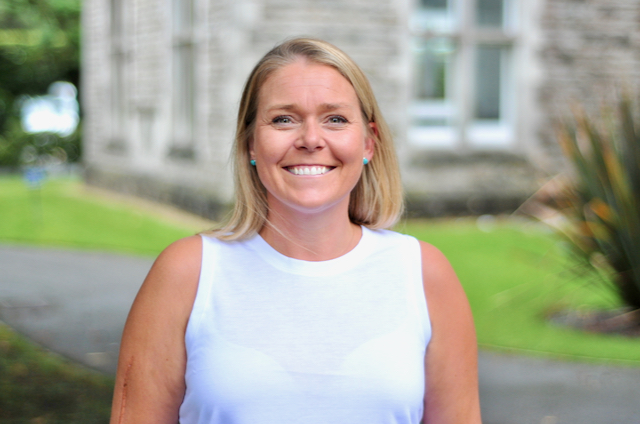
Course Leader
Louise Stanley
Course Lead and Senior Lecturer in Physiotherapy
Louise is a Course Lead and Senior Lecturer in Physiotherapy in the School of Health and Rehabilitation Sciences.
Full bioEntry Requirements
What qualifications do I need? 
What qualifications do I need?
A first or second class (2:1 or 2:2) BSc (Hons) degree in a relevant science-based subject.
Examples of relevant subjects include sport and exercise science, sports rehabilitation, sports therapy, human biology, biomedical sciences, anatomy and physiology.
Alternatively:
An existing qualification in nursing, midwifery or relevant Allied Health Profession (e.g: osteopathy or chiropractic).
Is there anything else that is required? 
Is there anything else that is required?
If you live in the UK, we’ll need a satisfactory Disclosure and Barring Service (Enhanced DBS) check. It’s standard for all UK students and we’ll be there to guide you through the process once you’ve applied. To gain a place on the course applicants must also successfully undergo an interview process. Interviews will be undertaken in person or remotely via Teams. More information about this process will be provided if/when applicants are invited to the interview stage.
Please note: You are required to have an Occupational health screening prior to commencement on the course
If you’re not sure about anything listed here, talk to our Admissions team on the form below or call us on 01202 436315 and we’ll be happy to answer any questions you have.
International Students 
International Students
Please note to be accepted onto this course; you will also need to demonstrate that you meet the minimum standards of English. For this course, the HCPC Standards of Proficiency suggest that for entry into Occupational Therapy must: ‘Be able to communicate in English to the standard equivalent to level 7 of the International English Language Testing System, with no element below 6.5’ applicants are required to achieve the equivalent of an IELTS (academic) score of 7.0 or above with no less than 6.5 in each section.
If your qualification is not listed here, please take a look at our international entry requirements page or get in touch with our admissions team on the form below. Please note, to be accepted onto this course; you will also need to demonstrate that you meet the minimum standards of English. For further information on English language requirements, please see the dedicated English language requirements page. More information on permission to study in the UK, can be found on our Visas and Immigration page.
How do I apply? 
Please use the Apply Now button above to make an application for this course through our online application system.
Applications for this course are reviewed on a rolling basis and places are offered as they become available; we encourage you to apply early to avoid disappointment. Applications may close early if capacity is reached before 30th September.
Still have questions about applying?
Course Fees
Our current course costs for the MSc Physiotherapy (Pre-registration) course are per annum and are shown below.
UK/ROI/Channel Islands
£9,535 per annum
International
£19,294 per annum
International students will be required to pay a non-refundable £1,000 tuition fee deposit to secure their place on the course. These deposits will need to be paid by November 30th 2024 and more details will be provided in your offer email. Further details about how to make this payment can be found on our Fees and Funding Information page.
For more information see Additional Costs page.
Please note: that these fees are for the 2025-26 academic year only and may be subject to increase in subsequent years of study. Any increase will be in line with our Tuition Fees Policy but will not be more than 5%.
Note: For students to be eligible for funding from Student Finance England, they must be studying on an eligible course at a provider registered with the Office for Students (OfS). Health Sciences University is registered with the OfS. You can view the register and search for our name.
The Funding Clinic (Funding information for studying the allied health professions).
Looking for accommodation in Bournemouth?
If you’re joining a programme in January and looking for accommodation, we’ve got you covered with a range of options to suit your needs.
Register your Interest
Register your Interest / Enquiry 

Why choose Health Sciences University
There are many benefits to studying at Health Sciences University, from our expertise and history in teaching health sciences, to our state-of-the-art facilities, on-site clinical training, and of course our location on the beautiful Bournemouth coast.
Student Stories
Inspiring stories from our MSc Physiotherapy (pre-registration) students.
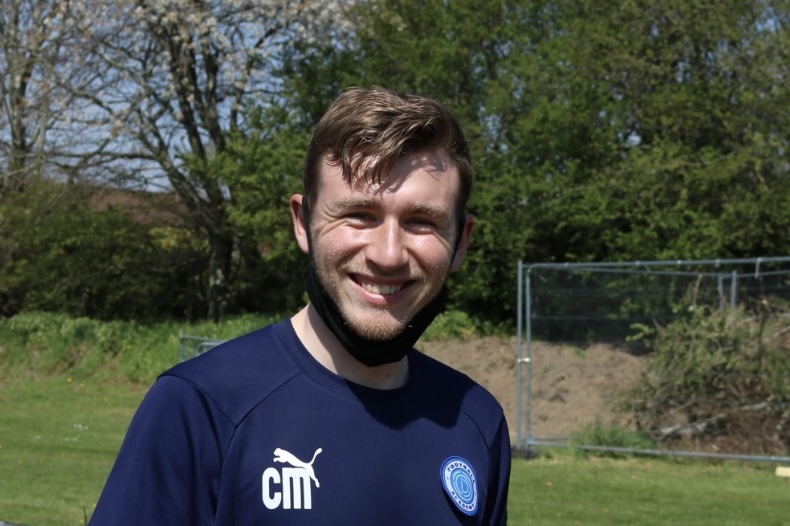
Student Story: Callum Moss
“There’s a nice atmosphere amongst the place and HSU has everything we could need.”
Callum's Story
Student Story: Aurora Paris
“HSU caught my attention due to the layout of the course; it sounded really inspiring."
Aurora's StoryLatest News
Discover and read all the latest news, press releases and happenings here at Health Sciences University.

We hear about Aurora’s work experience within Rugby and why she enjoys studying within the close-knit community at AECC University College.

Callum Moss is a First Year student on the MSc Physiotherapy (pre-registration) course at AECC University College. We recently caught up with him to hear more about his decision to study to become a physiotherapist and why AECC UC is an appealing specialist university.
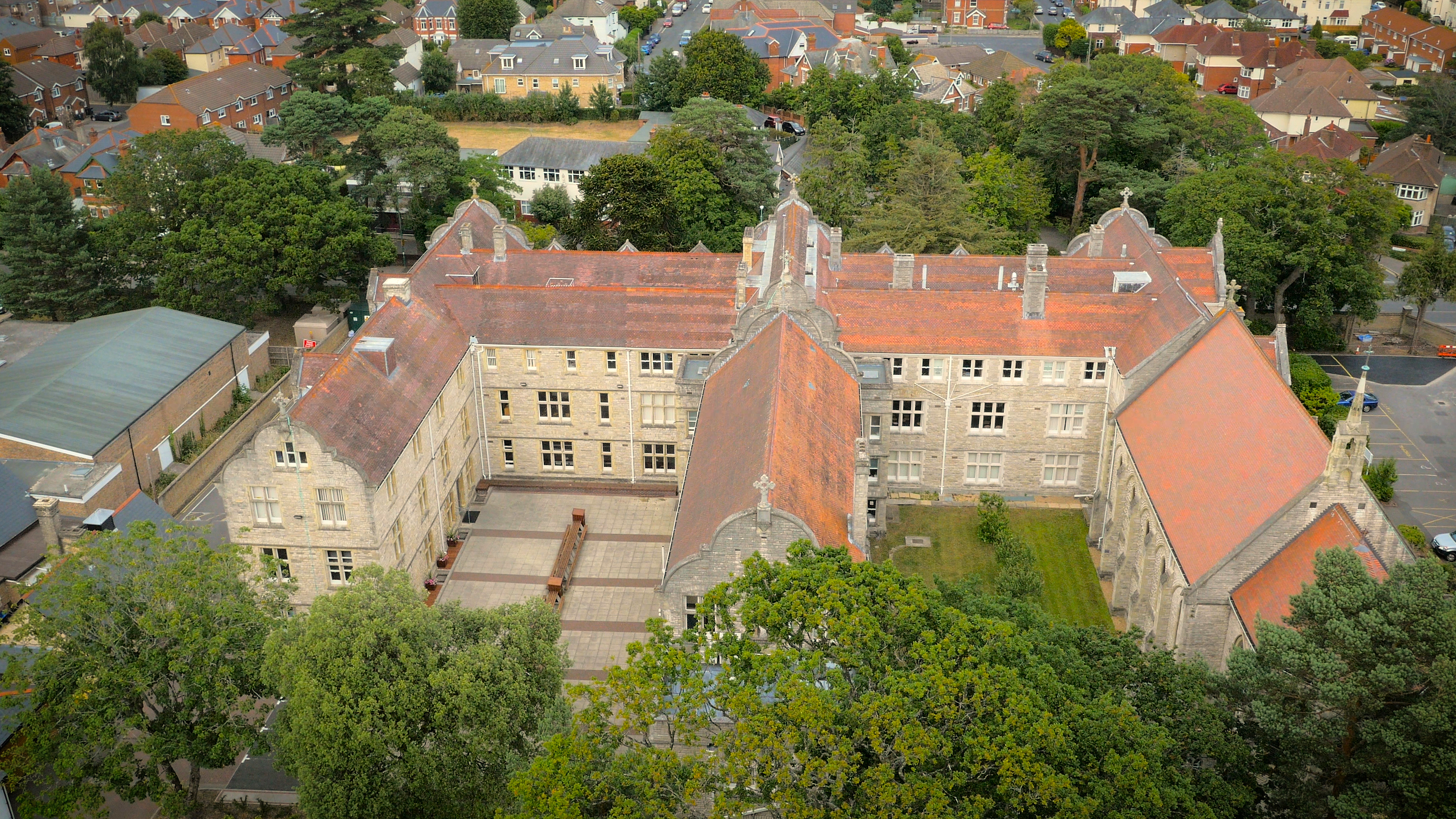
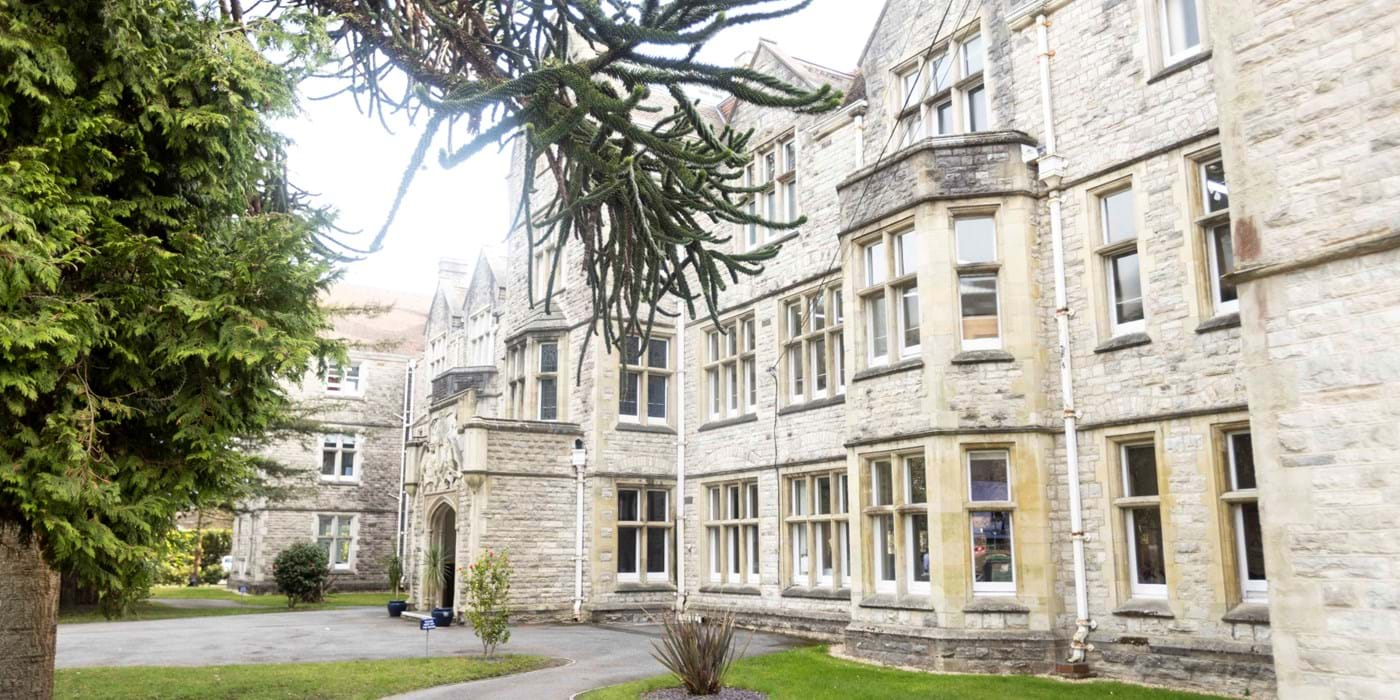

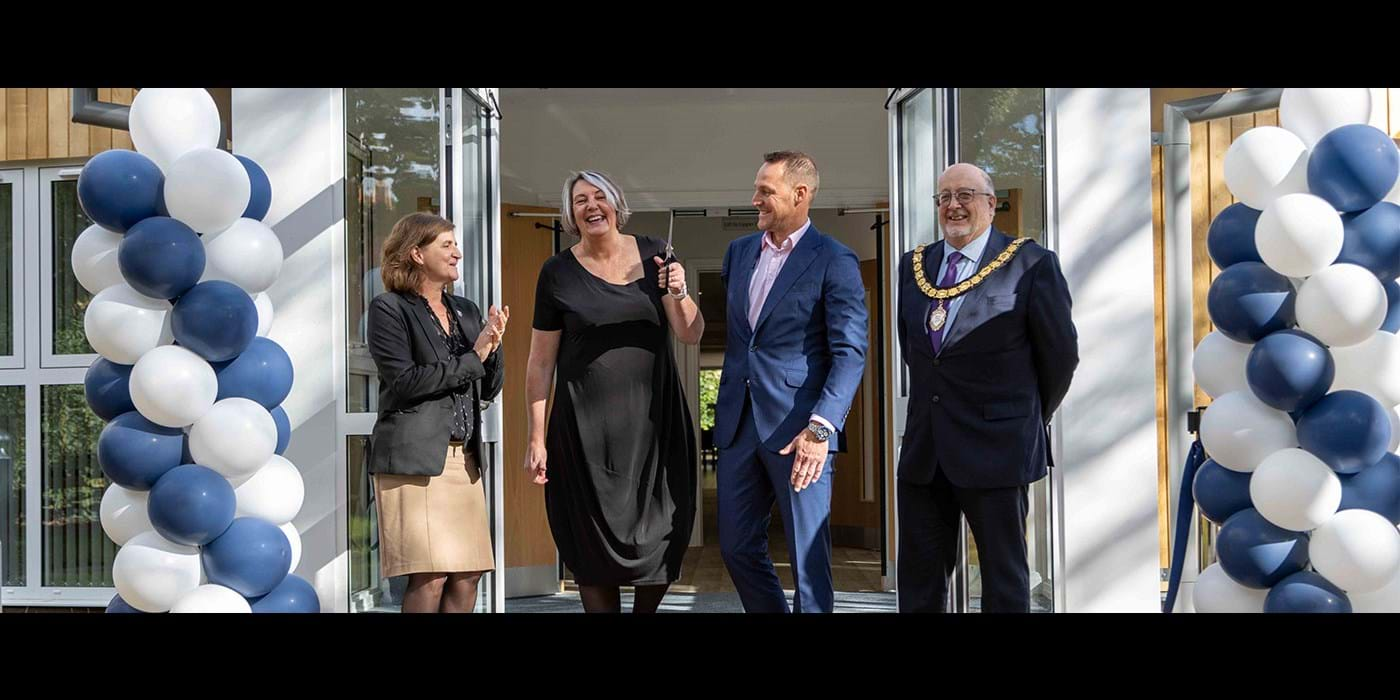
Staff, students and patients were joined by Paralympic Gold Medalist Danny Crates and Chair of the Board of Governors, Jeni Bremner, to officially open the new state-of-the-art centre for exercise and rehabilitation.
